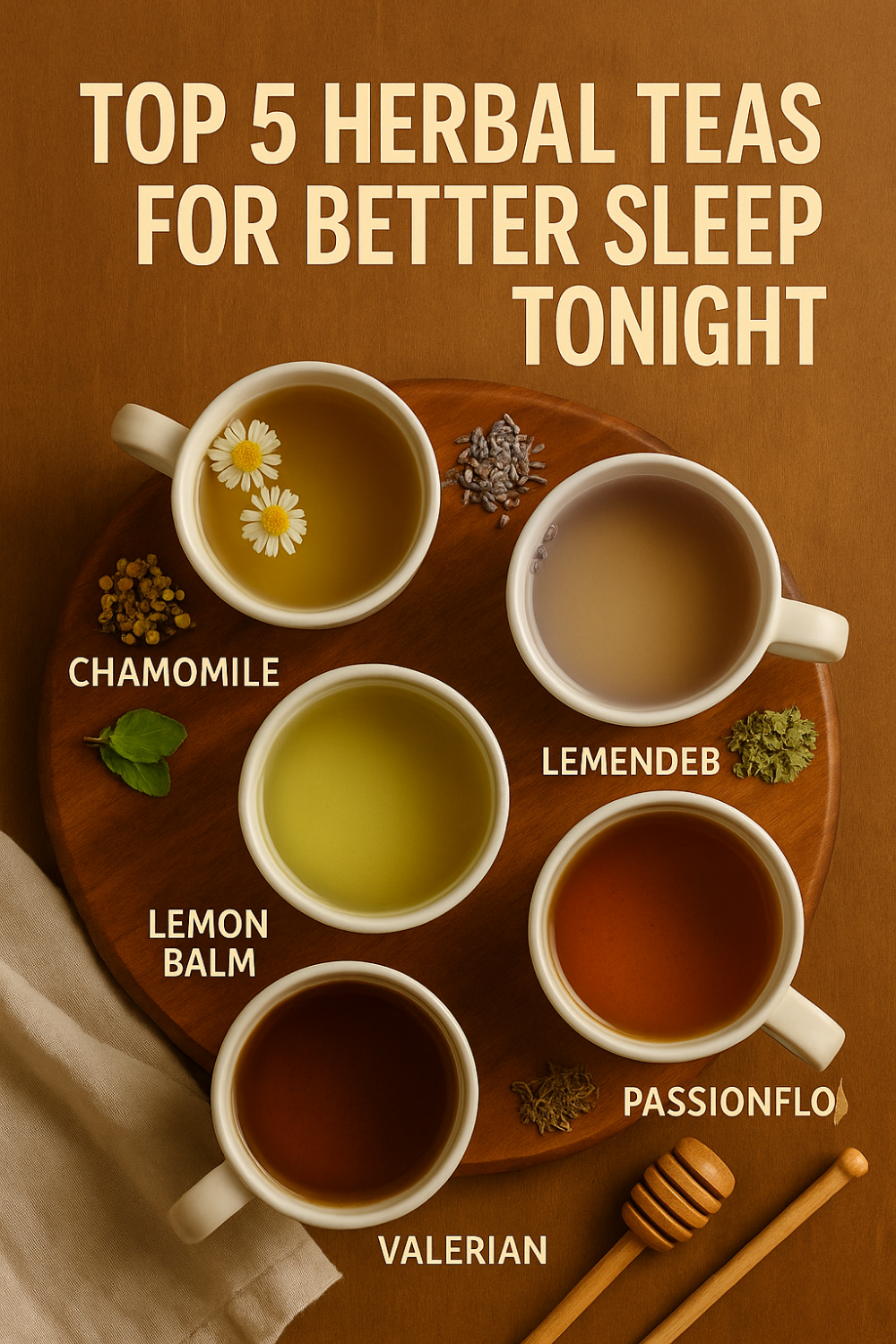Struggling to fall asleep or stay asleep can leave you exhausted and unfocused the next day. These natural remedies for deep, restful sleep harness calming herbs, soothing rituals, and gentle lifestyle tweaks—without prescription medications. Discover how ingredients like valerian root, chamomile, magnesium, and lavender can support your body’s own sleep mechanisms, helping you drift off faster, sleep more soundly, and wake up refreshed.

- Calming Herbal Teas and Tinctures
- Magnesium and Other Key Minerals
- Aromatherapy and Essential Oils
- Relaxing Bedtime Rituals
- Sleep-Friendly Dietary Choices
- Lifestyle Habits to Support Sleep
Calming Herbal Teas and Tinctures
Herbal teas such as chamomile, passionflower, and lemon balm have been used for centuries to soothe the nervous system. A nightly cup 30–60 minutes before bed helps lower anxiety and prepare the mind for rest. Tinctures of valerian root or hops can be even more potent—just follow dosing guidelines and start with a small amount to assess tolerance.
Magnesium and Other Key Minerals
Magnesium plays a crucial role in activating the parasympathetic nervous system, which calms the body. A supplement of 200–400 mg magnesium glycinate or citrate taken in the evening supports muscle relaxation and nerve function. Zinc and calcium also contribute to healthy sleep patterns; a combined mineral supplement or a balanced diet rich in leafy greens, nuts, and dairy can help meet these needs naturally.
Aromatherapy and Essential Oils
Lavender oil is the most studied essential oil for sleep, shown to decrease heart rate and blood pressure. Add a few drops to a diffuser or a warm bath before bed. Other beneficial oils include cedarwood, sandalwood, and Roman chamomile. Create a custom blend in a carrier oil and massage onto the soles of your feet or the back of your neck to promote deeper sleep.
Relaxing Bedtime Rituals
Establishing a calming pre-sleep routine signals your brain that it’s time to wind down. Consider a 10-minute gentle yoga or stretching session, a brief meditation or body scan, or reading a physical book under soft lighting. Avoid screens and blue light at least an hour before bedtime—consider using blue-light-blocking glasses if unavoidable.
Sleep-Friendly Dietary Choices
Foods rich in tryptophan (turkey, eggs, pumpkin seeds), complex carbohydrates (oats, quinoa), and healthy fats (avocado, almonds) can boost melatonin and serotonin production. A light evening snack combining protein and carbs—such as whole-grain toast with almond butter—can stave off hunger without causing blood sugar spikes. Avoid caffeine after midday and limit alcohol, which disrupts sleep architecture.
Lifestyle Habits to Support Sleep
Daily exercise promotes better sleep quality, but aim to finish workouts at least three hours before bedtime to avoid overstimulation. Maintain a consistent sleep schedule—even on weekends—to regulate your circadian rhythm. Keep your bedroom cool, dark, and quiet; blackout curtains, white-noise machines, or earplugs can help.
Frequently Asked Questions
How soon will natural remedies improve my sleep?
You may notice subtle effects within a few days, but most people see significant improvements after 2–4 weeks of consistent use.
Can I combine multiple remedies?
Yes. For example, pair a chamomile tea with magnesium supplementation and lavender diffusion—but introduce one change at a time to gauge its impact.
Are there any side effects?
Herbs like valerian can cause grogginess if overdosed; always follow recommended dosages and consult a healthcare provider if you have medical conditions or take medication.
Is it safe to use essential oils every night?
Generally, yes, when properly diluted. If you have sensitive skin or allergies, perform a patch test before regular use.
Can children use these natural sleep remedies?
Many remedies, like chamomile tea or establishing bedtime rituals, are safe for older children, but consult a pediatrician before giving supplements or essential oils.